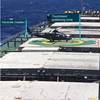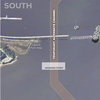Europe to Fund ‘SkillSea’ Project in Maritime Sector
The European Commission said it will co-finance the project ‘Futureproof Skills for the Maritime transport sector (SkillSea)’.
The project aims to develop strategies to identify and meet the future skills needs of the maritime sector and attract greater numbers of Europeans to work in maritime industries. The four-year project will begin in January 2019.
SkillSea is being launched by a Europe-wide consortium established by the industry's recognised social partners, the European Community Shipowners' Associations (ECSA) and the European Transport Workers' Federation (ETF) and led by the Rotterdam-based STC Group.
Martin Dorsman, Secretary General of ECSA said: “ECSA is pleased that our application was successful and that the importance of developing a forward-looking skills strategy for our sector has been recognised. We are most grateful for the trust that has been placed in us and our social partners and other consortium members to bring it to fruition. ECSA looks forward to the commencement of work on this exciting project which will contribute to the competitiveness of European seafarers and European shipping.”
The consortium comprises 27 national maritime authorities, shipping companies, shipowners’ associations, maritime trade unions and maritime education providers from 16 countries in Europe.
The “SkillSea” project, will be co-financed under Erasmus+ with the goal of producing a sustainable skills strategy for the maritime sector and related activities both at sea and ashore.
The project aims to increase the number of European maritime professionals; Map out technological developments in ship operation and their effect on the industry's skills requirements; Overcome barriers to the mobility of seafaring labour and improve co-operation between education providers, competent authorities and industry.
Eduardo Chagas, General Secretary of ETF, said: “Europe’s maritime sector is experiencing increased digitalisation and automation. We hope this project will contribute to a smooth transition, support high-quality employment and training for European maritime professionals, and guarantee the sustainability of maritime clusters in Europe."
He added: "We also aim to attract greater numbers of Europeans into maritime employment and to equip them with the skills necessary to meet the changing needs of the sector. This will ensure that they enjoy long and rewarding maritime careers, not only onboard ships but also in the shore-side clusters that support the seagoing industry and are a significant source of jobs throughout Europe.”










